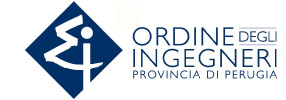Call for Contributions
EuroCG 2022 will be held March 14-16, 2022 in Perugia, Italy. EuroCG is an annual workshop that combines a strong scientific tradition with a friendly and informal atmosphere. The workshop is a forum where established researchers and students can meet, discuss their work, present their results, and establish scientific collaborations.
Important Dates
Submission Deadline: January 11, 2022Acceptance Notification: February 11, 2022
Early Registration ends: February 25, 2022
Camera-ready version: February 25, 2022
EuroCG 2022: March 14–16, 2022
All deadlines are 23:59 AoE.
Format
Given the current status of the COVID-19 pandemic in Europe, we currently aim at having an in-person workshop. The meeting will be held in accordance with all the Italian and European regulations and recommendations that will be in place at that time. There might be an upper bound on the number of accepted in-person participants, and in such a case priority will be given to paper authors and presenters. As we understand that it might still be difficult for some authors to travel due to various restrictions, we will guarantee the possibility of giving an online talk and all talks will be streamed. Any update or change in the workshop format will be published on the conference website and promptly announced.Invited speakers
- Leila De Floriani, University of Maryland at College Park, USA
- Michael Hoffmann, ETH Zürich, Switzerland
- Maurizio Patrignani, Università degli Studi Roma Tre, Italy
Topics of interest
Topics of interest cover all aspects of computational geometry, including but not limited to the following:- discrete and combinatorial geometry and topology,
- design and analysis of geometric algorithms and data structures,
- implementation and experimental evaluation of geometric algorithms,
- numerical and algebraic issues arising from implementations,
- analysis of geometric configurations,
- geometric modeling, visualization and simulation,
- combinatorial optimization,
- graph drawing,
- structural molecular biology,
- geometric puzzle analysis,
- geographic information systems,
- robotics and virtual worlds, and
- computer-aided design and manufacturing.
Best Student Presentation Award
To recognize the effort of young researchers to present their work clearly and elegantly, a Best Student Presentation Award will be voted on by the EuroCG 2022 attendees.Submission
We invite authors to submit extended abstracts of their original research. Submissions must be formatted in LaTeX using a supplied class file, and not be longer than 175 lines of text. Submissions will be handled through EasyChair.Authors must use the LaTeX class files eurocg22 and eurocg22-submission, which are based on the LIPICS class file. These class files should automatically count all lines containing text, excluding title and references, and excluding figures. Authors are expected to make reasonable effort to make sure all lines that contain text are counted: the class file should be considered an aid, and the responsibility of correctly counting lines remains with the authors. A zip file containing an example of how to use the class file can be found here.
Your submission should provide a clear statement of your results including proofs. The main (175 line) body of your submission should be self-contained and contain a clear and succinct description of your results. Content that does not fit in the main body due to space restrictions must be placed into a clearly marked appendix, which will only be read at the discretion of the program committee.
Acceptance Policy
EuroCG is a non-competitive forum. We will accept all submissions which are original, correct, well-presented, non-trivial, and in scope. The program committee judges submissions on these five criteria, each of which can lead to rejection. If a submission satisfies all criteria, then it will be accepted: there is no competition against other submissions.- Originality: If a submission does not contain original research by the authors, or if there is good reason to believe this is the case, this is a reason for rejection. We do not accept submissions which have already been accepted for publication elsewhere. However, we do explicitly allow submissions that are under review at another conference or journal (at the time of submission to EuroCG).
- Correctness. If the main / a major result of a submission is not correct, this is a reason for rejection. If an attentive reviewer cannot establish correctness of the results from the content of the submission, this is a reason for rejection. However, an acceptance at EuroCG is no correctness guarantee.
- Presentation. If a submission is written in a way that makes it unreadable, or it does not follow the submission guidelines as listed in the call for contributions, this is a reason for rejection.
- Technical Depth. If a submission is trivial, this is a reason for rejection. However, there is no “minimum level” of technical depth required.
- Scope. If a submission is out of scope, this is a reason for rejection. However, we wish to be inclusive in our interpretation of scope, which includes but is not limited to the list of topics in the call for contributions.
Proceedings
EuroCG does not have formally reviewed proceedings. A booklet of abstracts, without ISBN, will be accessible online on the website for the benefit of the community and must be regarded as a collection of preprints rather than a formally reviewed selection of papers. Results presented at EuroCG are expected to appear in other conferences with formal proceedings and/or in journals. In particular, papers that have been submitted to other formally reviewed conferences are eligible for presentation at EuroCG, assuming they have not been presented at a conference or published in a journal by the time of the conference. Authors of selected papers will be invited to submit extended versions to a special issue of the Computational Geometry: Theory and Applications journal.Authors of accepted submissions are expected to present their work at the conference (either in-person or online). Failure to do so may result in removal of the contribution from the abstract booklet and conference website.
GOLD SPONSORS

SILVER SPONSORS
CONTRIBUTORS

